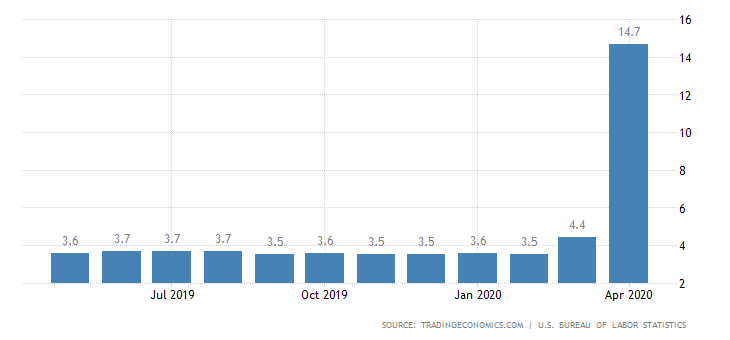2/ A central idea in sociology is that relationships and communities matter. People with social ties are healthier, our culture improves our lives. This is impeded with indefinite shut down.
3/ Another finding of sociology is that unemployment and poverty are devastating. Shut downs create massive unemployment. Our official unemployment rate is 14% right now. Brutal. Image from http://tradingeconomics.com/united-states/unemployment-rate">https://tradingeconomics.com/united-st...
4/ Unemployment is financially destructive, but it also leads to depression and, in some cases, suicide. Sustained unemployment and isolation is a form of social erosion and death. In some cases, it can be extremely bad (e.g., https://tinyurl.com/y874s4a3 )">https://tinyurl.com/y874s4a3&...
5/ Sociologists are acutely aware that low SES people are hit hardest by recessions and other negative social events. Lock downs won& #39;t harm a comfortable tenured professor like me, but they will wreck the lives of minorities and immigrants, who are more likely to be laid off.
6/ Sociologists also understand relative risk and framing as a social process. Moral panics are real. COVID is bad - I know one victim and two more who were hospitalized - but it is similar to other risks in magnitude like past epidemics where we did not shut down society.
7/ It is consistent to say that COVID is serious and deadly but also to understand that we may have exaggerated the level of risk and not made a proper trade off.
8/ Sociologists know that communities and relationships matter, massive unemployment is devastating, minorities will be disproportionately impacted and that some element of COVID response is a moral panic that does not reflect risk level.
9/ In sum, sociologists should be a voice for developing policies for re-opening, educating the public about risk, and proposing ways to mitigate the destruction of shut downs.

 Read on Twitter
Read on Twitter


